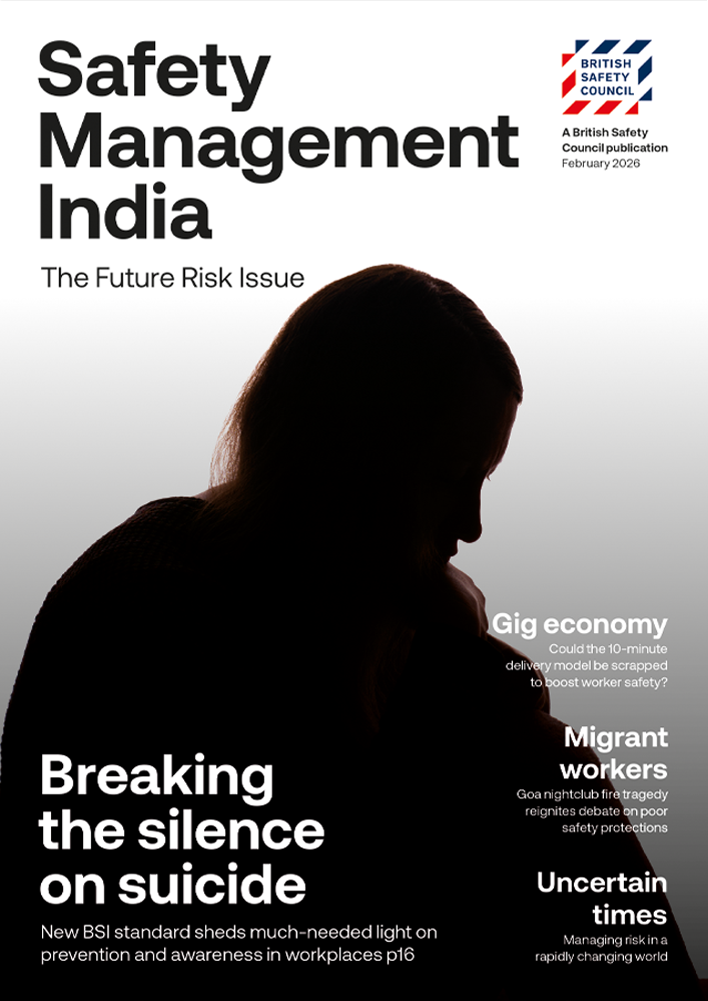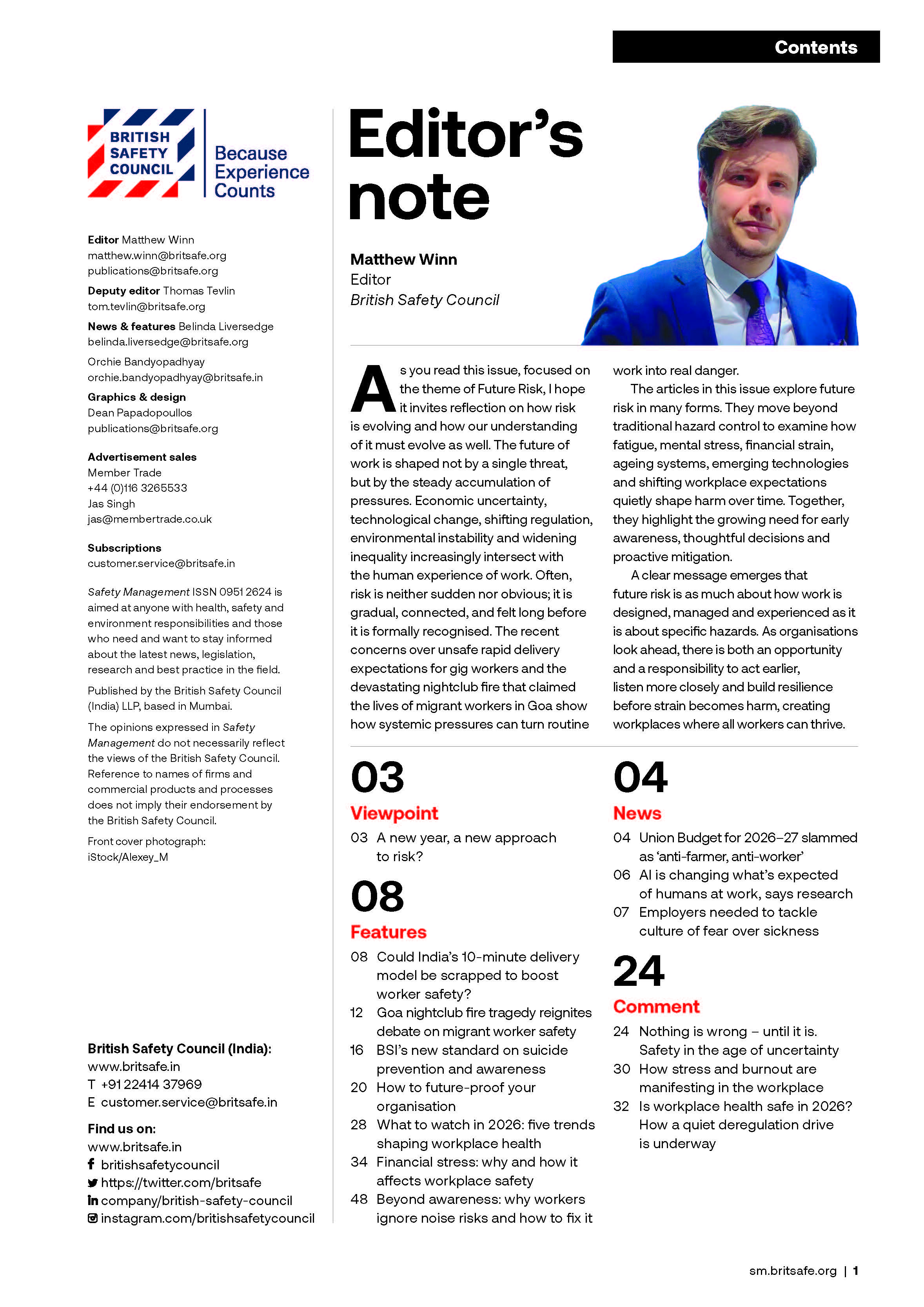The founders of Indian startups are understandably keen to rapidly grow their businesses, but commentators argue a lack of support for employee wellbeing actually threatens to hinder business success. Here, in the second of our two-part feature on employee wellbeing in startups, we explore the human and business problems arising from inadequate wellbeing support for staff.
Features
India’s startups: can they balance growth with employee wellbeing?
In the aftermath of the Covid-19 pandemic, India’s startup companies spearheaded a transformation in the country’s job market, introducing a variety of employee-friendly policies.
In February 2022, online business-to-business marketplace IndiaMART announced it would start paying workers’ salaries on a weekly rather than monthly basis, claiming to be the first Indian startup company to do so. IndiaMART CEO Dinesh Agarwal posted on X: “With an aim to build a flexible work culture and ensure the financial wellness of our employees, IndiaMART becomes the first Indian organisation to adopt a weekly payout of salaries!”
The same month, Meesho, an online shopping platform, announced a “Boundaryless Workplace” model, which essentially means the company’s employees can work from anywhere around the world.
In a series of posts on X, Meesho’s co-founder Vidit Aatrey, wrote: “It’s arguably been one of the most exciting ways to kickstart our week at @Meesho_Official! We’re permanently adopting a Boundaryless Workplace model. Meeshoites now have the power to define workplace flexibility and convenience.”
Aatrey added: “In the past two years, new ways of working have shattered long-held beliefs that virtual work was not possible. We studied multiple models to conclude that in an uncertain world, business growth in fact depends on a resilient and productive workforce.
“Leaders need to acknowledge that employees’ psychological and physical safety is more important than their location of work. It is less about the place and more about people’s potential and convenience.”

The importance of trust
Meanwhile, in an opinion piece published on business media platform Startup Talky, Vivek Chadha, founder of AccelerateX Ventures, a fundraising consulting company that specialises in accelerating the growth of early stage startups, and author of Startupology, a guide to developing a successful startup, echoed this sentiment: “The pandemic sped up a truth that many forward-thinking founders were already looking into; being there in person does not make you more productive.
“People can get their work done on time, with quality and often with more creativity when they work from home or in a hybrid setting, without having to be in the same place every day.”
Chadha added: “Startups have taken this lesson even further by making trust the most important thing in their business. Performance is judged by results, not attendance. A software developer might be working from a small village in Kerala, a marketing lead might be working from a café in Himachal, and a designer might be working from a different time zone.
“People come together because of the quality of their work, not how far apart they are. This way, more people can find talented people more easily.
“Professionals who may have been overlooked because of where they live, family obligations or physical limitations are now making important contributions to businesses that are growing quickly.”
Meanwhile, in a separate opinion piece for Startup Talky, entitled ‘Workplace Freedom: Redefining Independence for India’s Modern Professionals’, Saurabh Sharma, founder & CEO of technology consulting business Agile 360 Degree Consulting, said modern professionals working for tech companies and startups – especially Gen Z and millennials – “don’t want to be micromanaged at work; they want to be free to do their own thing.
Sharma argues that many tech businesses, including startups, use technology to monitor employee working hours and time spent at the desk, but this is counterproductive for worker motivation, creativity, loyalty and wellbeing.
“Ping-pong tables, weekly pizza parties, and WFH policies do not count when employees are being tracked down to the minute,” he wrote. “Surveillance software like Time Doctor or Hubstaff might offer [managers] visibility [of staff working patterns], but they fail to build accountability. Instead, they create a culture of suspicion. One developer admitted to spending hours subtly moving her mouse during breaks just to appear active. That is not productivity. That is performative compliance.”
Business commentators say the workplace culture in Indian startups often reflects their founders’ priorities. Where founders value inclusivity, employees tend to report higher satisfaction and lower burnout. In contrast, in ‘growth-at-all-costs’ environments, even well-intentioned employee wellness programmes risk becoming no more than token gestures.
Company share options ‘prove illusory’
Another issue that potentially affects worker wellbeing is the promise of purchasing company shares in early-stage startups with the hope of making a financial gain by selling them at a higher price when the company becomes successful and its stock market value increases or it is purchased by a bigger company. Workers often accept the offer of shares in an early-stage startup while working for the business at below-market rates, relying on the prospect of a financial gain when the business becomes highly successful, though commentators say this often doesn’t happen.
Employee Stock Ownership Plans (ESOPs), under which employees own a stake in the company that employs them through shares held in a trust, are common in India, particularly among people employed by startups.
ESOPs are funded by contributions in the form of company shares or cash by the business, and employees gradually acquire shares, often based on factors like their salary, the value of ‘bonuses’ they receive or length of service.
An ESOP therefore effectively acts as a form of retirement plan, as when an employee leaves the company, retires or becomes disabled, they receive payment for the value of their shares, potentially realising a profit. The shares or cash paid into an ESOP by the business are a form of deferred financial compensation for workers, though the eventual value of an employee’s shares is subject to factors such as the value of the company’s stock when the employee retires, leaves the business or decides to ‘cash in’ their shares.
As well as providing a way for startups to defer immediate financial payments to staff (and therefore pay lower cash salaries), by instead granting employees shares in the business, some commentators argue ESOPs also encourage employee loyalty, reduce workforce turnover and boost business growth and expansion, as employees who own a share of a company are likely to have greater motivation to work hard and help make the business a success.
More than 1.5 million employees in India hold ESOPs, and a significant number of employees working at startups where an ESOP is in place are waiting either for the startup’s shares to be publicly ‘floated’ on the stock exchange (allowing them to sell their shares at a profit), or for a favourable buyback –where one of the startup’s founders, or an investor, purchases employee shares to increase their personal stake. However, the reality is often far less financially rewarding than originally expected: the tax burden on realised profits is often so huge that it wipes out a large portion of the profit gained on the rise in the value of the shares.
According to a news report in The Hindu, data from the companies behind the food and grocery delivery apps Zomato and Swiggy highlights this dark side of ESOPs. Zomato’s earliest-recruited employees, for instance, could have exercised their option to buy shares in 2012 at just Rs 0.45 per share, and paid only Rs 0.18 per share in taxes on the shares.
However, by the time of Zomato’s IPO (initial public offering) in 2021, when the business was ‘floated’ on the stock exchange, allowing public investors to purchase shares and the shares to be publicly traded, the ‘fair market value’ had climbed to Rs 76 a share. Those employees who held on in the hope of maximising returns on their share options ended up paying Rs 29.64 in taxes per share, a 165-fold increase.
Swiggy employees faced a similar fate. By the time of its 2024 IPO, the tax liability for those selling shares had risen to Rs 151.5 per share.
Risks to employee health, safety and wellbeing
Meanwhile, commentators say that at some startups, there are a number of risks to employee health, safety and wellbeing. For instance, labour market experts say some early-stage or underfunded startups allocate only minimal resources for occupational health and safety and have poor or underdeveloped formal HR processes.
For example, in recent years there have been numerous cases of employees at early-stage or less successful startups abruptly being made redundant or finding themselves out of work after their fixed-term employments contracts were not renewed. This, say employment rights experts, has undermined employees’ trust in the actions, motivations and competence of the founders of some startups.
Commentators add the ongoing threat of loss of employment means there is poor psychological safety at some startups – meaning employees lack the confidence to express ideas and concerns, admit mistakes and challenge others, including the founders and management of startups, due to the fear of negative consequences such as redundancy.
As one expert put it: “A healthy workplace culture requires consistency that integrates safety and wellbeing into decision-making, not bolting it on after a funding round.”
Vishwas Kumar, co-founder of Rising Bharat Technology, a Delhi-based tech startup, believes many of India’s startups are at a crossroads in terms of how they treat their employees. Kumar argues that while some startups have demonstrated that making employee wellbeing a priority is both ethical and a good strategic decision that increases the likelihood of the company’s long-term success, many are still chasing business growth at the expense of the wellbeing of their teams.
“The contrast is there for all to see,” he says, adding that the next disruption in India’s startup ecosystem will not be about apps, funding rounds or IPOs: “It will be about culture. Founders who treat [employee] wellbeing as an investment, not a cost, will not only build stronger companies but also shape a more sustainable future for India’s economy.”
Government funding for startups
In a bid to foster an ecosystem of innovation, invention and enterprise where startups can thrive and contribute to economic growth, the Union Government has launched various business support initiatives, such as Startup India (2016), Startup India: The Way Ahead (2021), Startup India Seed Fund Scheme (2021) and Fund of Funds for Startups (FFS) Scheme (2016).
Inspired in part by the Union Government’s efforts to create a business environment that supports the launch and growth of startups, Delhi chief minister Rekha Gupta has proposed an innovative startup policy for the Delhi National Capital Territory (NCT) that aims to support the establishment of 5,000 startup businesses in the city of Delhi by 2035. The policy, described by many as a bold entrepreneurial leap, aims to establish Delhi–NCT as a global innovation hub by 2035, according to a document published by Delhi–NCT’s government.
Under the draft policy for startups, the Delhi–NCT Government will provide a financial grant of Rs. 200 crore (Rs. 2 billion) to establish a new ‘Delhi Startup Venture Capital Fund’ that will offer loans and grants to startup businesses in Delhi–NCT.
According to a document from Delhi–NCT’s Government, the fund will seek to “encourage, facilitate and support the emergence of at least 5,000 startups by 2035”. It adds the fund aims to “encourage entrepreneurship that enables sustainable and inclusive socio-economic development across the State.”
The document adds that the fund will seek to support the establishment and growth of startups in 18 key areas, including healthcare services, hospitality, fintech, automotive enterprises, e-waste management, logistics, supply chain management, gaming, green technology and robotics.
“Delhi is one of the fastest-growing states in the country,” states the Delhi–NCT Government’s document. “The proximity to government institutions, the presence of a business-friendly infrastructure, and a burgeoning entrepreneurship culture make the city a viable IT hub.
“The IT & ITES [Information Technology Enabled Services] sector in Delhi has emerged as a rapidly developing industry. The key sectoral areas for this policy mirror the Government’s priorities relating to science and technology and IT/ITES and align with the strengths of the state [of Delhi-NCT].”
However, entrepreneurs say that while the Union and State Governments claim to be taking action to support the growth of startups, with the aim of boosting economic growth and living standards, there are still numerous barriers hindering the establishment and growth of startups.
In fact, when the Union Government’s commerce and industry minister Piyush Goyal poked fun at the rise of food delivery and gambling apps, one startup founder publicly complained that it was difficult for startups to thrive in India.
In a series of posts on X in response to Goya's comments, Murtaza Amin, founder and CEO of IT services company, BizProspex, based in Burhanpur in Madhya Pradesh, revealed the challenges faced by startups in India: “I run a 100 people software company from #Burhanpur MP… and I am the largest white collar employer in #Burhanpur. Since you’ve been talking about how Indian #startups are not innovating enough, I’d like to ask are you providing us enough resources to innovate? We don’t have 24/7 electricity, bureaucratic harassment is rampant, and we are treated like 3rd grade citizens by babus [government officials].”
Amin added: “I am tired of giving bribes for everything… frequent and unscheduled power cuts (for God’s sake, what do I tell my customers in the UK?)… and enough with bureaucratic harassment.”
Problems with red tape
Amin claimed that problems with red tape and basic infrastructure mean he is regularly forced to travel 60 kilometres from Burhanpur to Khandwa city to speak to various authorities about administrative matters only to be met with demands for bribes. “Aren’t we building Digital India? Or is that a jumla [hollow promise] for commoners like us, not for babus [government officials]?”
He added: “I had the opportunity to live comfortably in the US; I moved there in 2016 and lived a good life, but I choose to come back [to India] with a thought that I’d like to live close to family and provide employment where it is needed the most. I am regretting that decision every day.”
Since Amin’s tweet went viral, he claims to have received calls from several government officials and ministers offering various types of support, according to The Print news platform. A minister from the state Government of Kerala also floated the idea of Amin shifting his business to South India, promising greater support for his business, according to the news report.
According to Amin, the Union Government needs to focus on supporting the growth of businesses in smaller towns, and therefore encourage reverse migration, where entrepreneurs and skilled workers move from big cities to smaller towns, creating startups and new, more local employment opportunities.
Amin’s public statements highlight the fact that, in the opinion of many business commentators, India’s startup ecosystem is at crossroads. Although it is clear India can nurture startup businesses that act as industry disrupters and become valuable businesses in terms of market share and market value, commentators say the crucial question is whether the country can also cultivate workplaces where people can grow. After all, growth built on burnout is growth that never lasts.
FEATURES

India’s 10-minute delivery model: why working conditions could be about to improve
By Orchie Bandyopadhyay on 13 February 2026
India’s ‘10-minute’ quick-commerce home delivery model has been criticised for allegedly encouraging reckless riding by delivery workers, but the Government has now reportedly stepped in to urge the app platforms to abandon the time-bound delivery promise and do more to ensure the safety of the sector’s workers.

Migrant workers: Goa fire tragedy reignites debate on poor safety protections
By Orchie Bandyopadhyay on 13 February 2026
A deadly fire at a nightclub in Goa that claimed the lives of 20 migrant workers from across India made global headlines – and triggered fresh demands for government agencies to step up efforts to ensure the safety of low-paid workers in environments such as bars, nightclubs and hotels.




